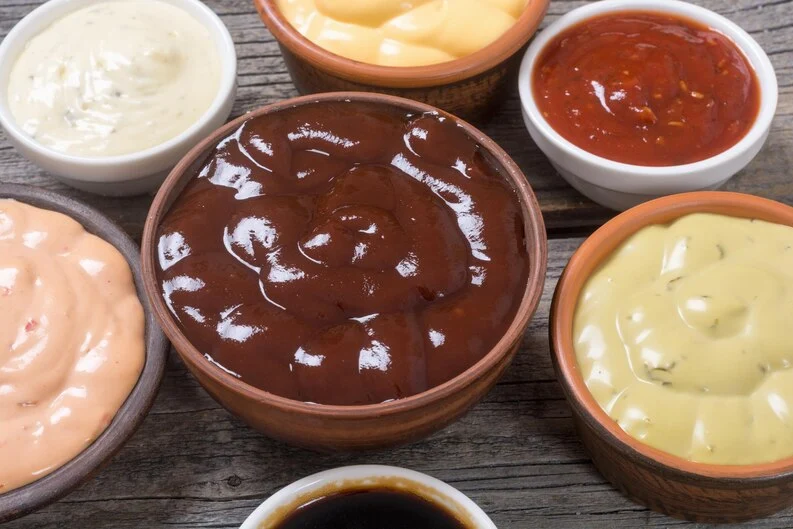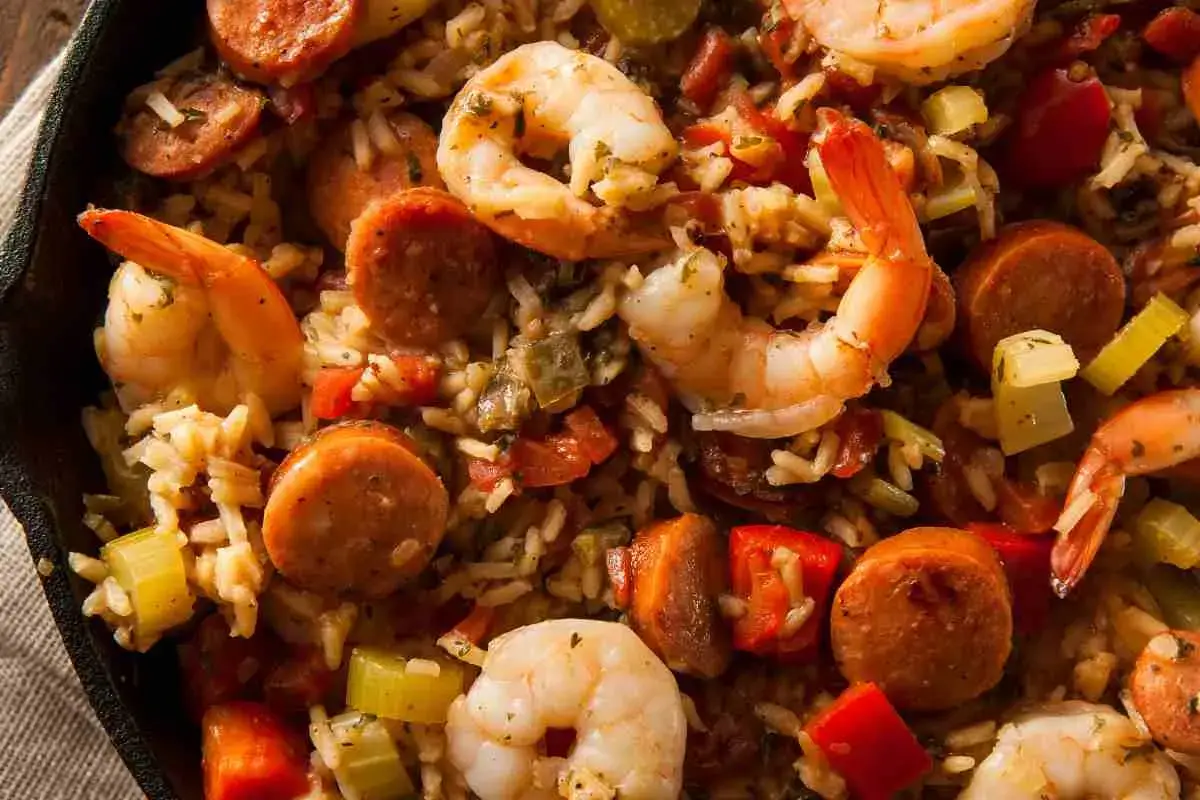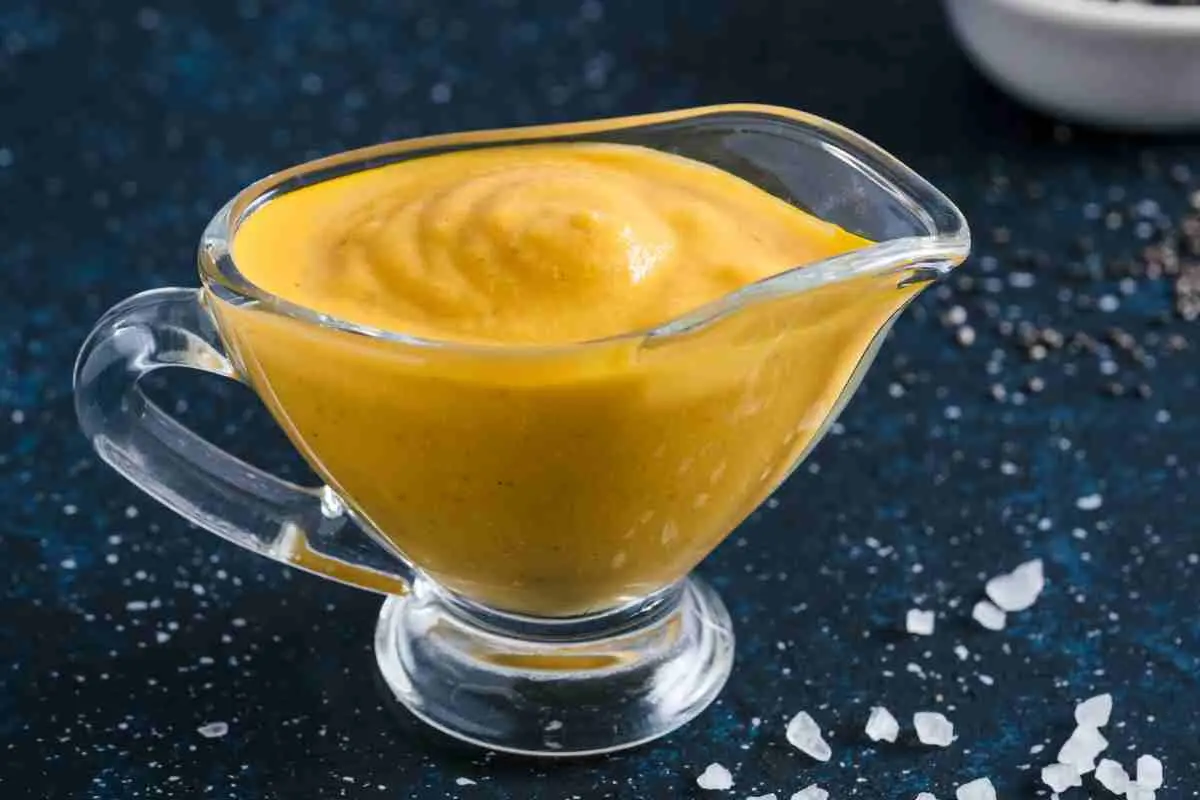Welcome to our comprehensive guide to Cajun sauce! If you’re curious about this zesty condiment and want to explore its origins, learn about key ingredients, and discover delicious recipes, you’ve come to the right place. Cajun sauce is a beloved staple in Cajun cuisine, known for its bold flavors and spicy kick. Whether you’re a seasoned Cajun food lover or new to this vibrant culinary tradition, our guide will provide you with flavorful tips and exciting recipes to enhance your cooking repertoire. So let’s dive in and uncover the secrets of Cajun sauce!
The Origins of Cajun Sauce
Cajun sauce, with its bold and spicy flavor, has deep roots in the Acadian culture of Louisiana. This zesty condiment has a fascinating history that has contributed to its status as a beloved staple in Cajun cuisine.
The origins of Cajun sauce can be traced back to the Acadian people, who migrated from Canada to Louisiana in the 18th century. These French-speaking immigrants brought their culinary traditions with them, including their love for flavorful and aromatic sauces.
As the Acadians settled in Louisiana, they adapted their traditional recipes to incorporate local ingredients and techniques. Over time, a unique style of cuisine known as Cajun emerged, which featured the use of bold spices, fresh seafood, and hearty meats.
One of the key elements of Cajun cuisine is the use of hot sauces, and Cajun sauce quickly became a standout condiment in this vibrant culinary tradition. It is believed that the combination of the Acadian’s love for spicy flavors and the abundance of flavorful ingredients in Louisiana’s fertile landscape led to the creation of the iconic Cajun sauce.
The recipe for Cajun sauce has been passed down through generations, with each family adding their special touch. Today, there are countless variations of Cajun sauce, each with its unique blend of spices and ingredients.
Cajun sauce’s popularity has spread far beyond Louisiana, becoming a staple in kitchens around the world. Its fiery kick and tantalizing flavor have captured the hearts and taste buds of food enthusiasts everywhere.
Whether you’re smothering it on grilled meats, adding a dash to a seafood gumbo, or using it as a dipping sauce for fried delicacies, Cajun sauce adds a burst of flavor that takes any dish to the next level.
The Journey of Cajun Sauce
- Traced back to the Acadian culture of Louisiana
- Adapted traditional recipes with local ingredients
- Became a staple in Cajun cuisine
- Spread worldwide, gaining popularity in kitchens everywhere
Exploring Key Ingredients
Uncover the essential components that give Cajun sauce its distinctive flavor. From traditional spices like cayenne pepper and paprika to secret ingredients used by renowned Cajun chefs, we’ll delve into the key elements that make this sauce so flavorful.
When it comes to Cajun sauce, the key ingredients are what truly set it apart. These carefully selected components work together to create a harmonious blend of flavors that tantalize the taste buds. Let’s take a closer look at some of the key ingredients that make Cajun sauce so irresistible.
Traditional Spices
- Cayenne Pepper: Known for its fiery heat, cayenne pepper is a staple ingredient in Cajun cuisine. Its vibrant red color and intense spiciness add a bold kick to the sauce.
- Paprika: Paprika brings a smoky and slightly sweet flavor to Cajun sauce. It adds depth and enhances the overall taste profile.
- Garlic Powder: Garlic powder infuses the sauce with its distinct aroma and savory taste. It adds a touch of umami and complements the other flavors.
Secret Ingredients
Besides the traditional spices, many renowned Cajun chefs have their secret ingredients that add a unique twist to their Cajun sauce recipes. These secret ingredients are often closely guarded family recipes, passed down through generations.
While we may not have access to these specific secret ingredients, we can still experiment with our variations. Some popular additions include:
- Onion Powder: Adding a hint of sweetness and depth, onion powder enhances the overall flavor profile of Cajun sauce.
- Herbs: Herbs like thyme, oregano, and basil can bring a fresh and aromatic dimension to the sauce.
- Citrus: A splash of lemon or lime juice can brighten up the flavors and add a tangy twist.
By exploring these key ingredients and experimenting with your unique variations, you can create a Cajun sauce that suits your personal taste preferences. Whether you prefer it hot and spicy or milder with a hint of sweetness, the possibilities are endless.
Homemade Cajun Sauce Recipe
Put your culinary skills to the test with our easy-to-follow homemade Cajun sauce recipe. Whether you prefer a mild or fiery version, we’ll guide you through the steps to create your delicious sauce from scratch.
- In a saucepan, heat 2 tablespoons of vegetable oil over medium heat.
- Add 1 finely diced onion and 2 cloves of minced garlic. Sauté until the onion becomes translucent.
- Next, add 1 diced red bell pepper and 1 diced green bell pepper. Cook until the peppers soften.
- Stir in 2 teaspoons of Cajun seasoning, 1 teaspoon of paprika, and 1/2 teaspoon of dried thyme.
- Pour in 1 cup of chicken broth and 1 can (14 ounces) of diced tomatoes. Bring the mixture to a simmer.
- Reduce the heat to low and let the sauce cook for 15-20 minutes, allowing the flavors to meld together.
- Finally, remove the sauce from the heat and use an immersion blender or a regular blender to puree the mixture until smooth.
Once blended, your homemade Cajun sauce is ready to be used as a marinade, dipping sauce, or a flavorful topping for your favorite dishes. Enjoy the bold and spicy flavors of this authentic Cajun sauce!
Exploring Variations of Cajun Sauce

Cajun sauce is known for its bold, spicy flavor that adds a kick to any dish. However, this beloved condiment offers much more than just one standard recipe. Over time, various regions and kitchens have adapted Cajun sauce to suit their unique tastes and preferences. Let’s delve into the different variations and regional adaptations that showcase the incredible versatility of Cajun sauce.
Variations:
- Creole Cajun Sauce: This variation incorporates Creole influences, resulting in a milder flavor profile. It often features a combination of tomatoes, onions, bell peppers, and a touch of sweetness.
- Blackened Cajun Sauce: Blackened Cajun sauce is made by charring the ingredients before blending, giving it a smoky and slightly charred flavor. It pairs perfectly with grilled meats and seafood.
- Vegan Cajun Sauce: To accommodate dietary preferences, vegan versions of Cajun sauce use plant-based ingredients while maintaining the authentic Cajun flavor. They often feature ingredients such as smoked paprika, nutritional yeast, and vegetable broth.
- Cajun Hot Sauce: For those who prefer extra heat, Cajun hot sauce steps up the spice level. It typically includes hotter peppers like habanero or scotch bonnet, providing a fiery kick to any dish.
Regional Adaptations:
- Louisiana Cajun Sauce: Originating from the heart of Cajun country, Louisiana-style Cajun sauce is rich in flavors like garlic, onion, and cayenne pepper. It is the classic version that many people are familiar with.
- Texas Cajun Sauce: Texas adds its spin to Cajun sauce by incorporating ingredients like chipotle pepper, cilantro, and lime juice. This Tex-Mex fusion brings a unique freshness and tang to the traditional Cajun flavors.
- Caribbean Cajun Sauce: In the Caribbean, Cajun sauce has been infused with island spices and tropical fruits, adding a vibrant and exotic twist to the traditional recipe. Ingredients like mango, pineapple, and allspice are commonly used.
- French Cajun Sauce: In France, chefs have adapted Cajun sauce to incorporate local ingredients like Dijon mustard, red wine vinegar, and herbes de Provence. This variation adds a touch of French elegance to the Cajun spice.
As you can see, the variations and regional adaptations of Cajun sauce are as diverse as the cultures that have embraced this flavorful condiment. Each unique twist provides a new opportunity to explore the countless ways Cajun sauce can elevate your culinary creations.
Pairing Cajun Sauce with Foods

Cajun sauce adds a spicy kick to a variety of dishes, enhancing their flavors and creating a memorable dining experience. Whether you enjoy mild heat or crave fiery sensations, Cajun sauce has a place at your table. Explore the best flavor pairings and culinary combinations that will elevate your meals to new levels of deliciousness.
1. Seafood Delights
- Grilled shrimp marinated in Cajun sauce offers a mouthwatering blend of smoky and spicy flavors.
- Blackened fish seasoned with Cajun sauce brings out the natural flavors of the seafood, creating a tantalizing taste sensation.
- Crab cakes with a drizzle of Cajun sauce provide a harmonious balance of sweetness and spice.
2. Meaty Marvels
- Cajun-spiced chicken wings are a crowd-pleasing appetizer, perfect for game days or gatherings.
- Steak seasoned with Cajun sauce adds a burst of flavor to every juicy bite, creating a savory experience like no other.
- Grilled pork chops glazed with Cajun sauce offer a delightful combination of tangy and savory notes.
3. Veggie Creations
- Roasted vegetables tossed in Cajun sauce provide a spicy twist to this healthy side dish.
- Stuffed bell peppers with a Cajun-inspired filling create a burst of flavors that will leave you craving more.
- Cajun-spiced cornbread muffins perfectly complement soups, stews, and chili dishes.
These are just a few ideas to inspire your culinary adventures with Cajun sauce. Feel free to experiment and create your unique pairings. Whether you’re hosting a dinner party or simply cooking for yourself, adding Cajun sauce to your dishes will take them to a whole new level of deliciousness.
The Nutritional Profile of Cajun Sauce
When it comes to enjoying Cajun cuisine, the flavorful Cajun sauce plays a prominent role. Not only does it add a spicy kick to your dishes, but it also brings along a unique nutritional profile that you should be aware of. Here’s a breakdown of the key components:
- Calories: A typical serving of Cajun sauce contains around 50-70 calories, depending on the brand and recipe.
- Fat: Cajun sauce is generally low in fat, with most varieties containing less than 1 gram per serving. This makes it a suitable option for those watching their fat intake.
- Sodium: Due to its flavorful blend of spices, Cajun sauce can be relatively high in sodium. On average, a serving can contain 200-400 milligrams of sodium. Individuals with high blood pressure or other sodium-restricted diets should consume it in moderation.
- Carbohydrates: Cajun sauce typically contains a small amount of carbohydrates, usually around 2-3 grams per serving. This makes it a suitable choice for those following a low-carb diet.
- Protein: While Cajun sauce is not a significant source of protein, it may contain traces of it due to the ingredients used in its preparation.
Incorporating Cajun sauce into a balanced diet is entirely possible, with moderation being the key. Its bold flavors can enhance the taste of various dishes without compromising your nutritional goals. However, if you have specific dietary restrictions or health concerns, it is recommended to consult a healthcare professional before indulging in Cajun sauce.
Now that you are aware of the nutritional profile, you can make informed decisions about how to incorporate Cajun sauce into your meals. Whether you drizzle it over grilled chicken, mix it into a seafood gumbo, or use it as a dipping sauce, Cajun sauce offers a flavorful addition to your culinary adventures.
Cajun Sauce in Culinary Arts and Popular Culture
Cajun sauce has become an integral part of the culinary arts, adding a burst of flavor to dishes from around the world. Renowned chefs in professional kitchens have embraced the versatility of Cajun sauce, incorporating it into their creations to elevate the taste profiles of various cuisines. From seafood to meats, Cajun sauce has found its place as a go-to condiment in the hands of culinary experts.
Not only has Cajun sauce made its mark in the culinary arts, but it has also permeated popular culture. Its spicy and rich flavors have captured the taste buds of people worldwide, making it a beloved addition to countless dishes. From traditional Cajun dishes to fusion creations, Cajun sauce has established its presence in various cuisines, adding a touch of Louisiana’s vibrant flavors to menus across the globe.
The popularity of Cajun sauce extends beyond the kitchen walls, as it is frequently depicted in media and entertainment. Whether it’s through television shows, movies, or even food competitions, has become an icon of flavor and excitement. Its use in popular culture not only showcases its culinary significance but also its ability to captivate and inspire both food enthusiasts and casual viewers alike.
FAQ
What is Cajun sauce?
is a zesty condiment that originated from the Acadian culture of Louisiana. It is known for its spicy and flavorful profile, typically featuring a combination of traditional spices like cayenne pepper and paprika.
What are the key ingredients in Cajun sauce?
The key ingredients include cayenne pepper, paprika, garlic powder, onion powder, thyme, oregano, and black pepper. Some chefs may also add their secret ingredients to make their sauce unique and distinct.
Can I make Cajun sauce at home?
Absolutely! We have a homemade Cajun sauce recipe that is easy to follow. Whether you prefer a mild or fiery version, our recipe will guide you through the steps to create your delicious sauce from scratch.
Are there different variations of Cajun sauce?
Yes, there are various regional and personal variations of Cajun sauce. Some may use additional ingredients like Worcestershire sauce, hot sauce, or lemon juice to enhance the flavor. Exploring these variations allows you to find the perfect balance for your palate.
What foods can I pair Cajun sauce with?
Cajun sauce pairs well with a wide range of foods. It complements grilled meats, seafood, vegetables, and even rice dishes. Get creative with your culinary combinations, and you’ll discover endless possibilities to enhance your meals.
What is the nutritional profile of Cajun sauce?
Cajun sauce is generally low in calories but can be high in sodium, depending on the recipe. It also contains beneficial antioxidants from the spices used. As with any condiment, moderation is key to incorporating it into a balanced diet.
How is Cajun sauce used in culinary arts and popular culture?
Cajun sauce holds a prominent place in both culinary arts and popular culture. It is used in professional kitchens to add flavor and spice to a variety of dishes. In popular culture, is often associated with the vibrant and bold flavors of Cajun cuisine portrayed in movies, TV shows, and cookbooks.
